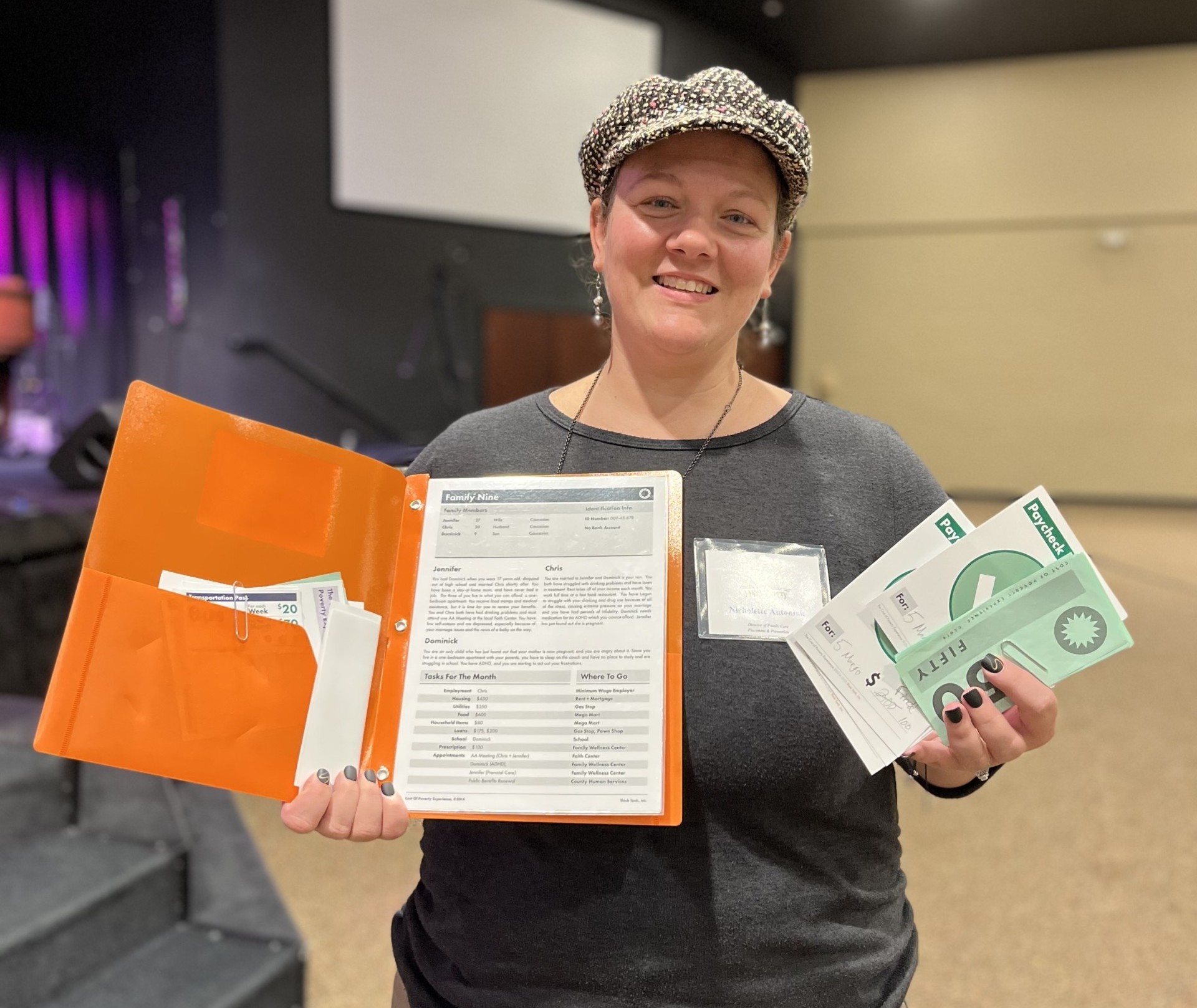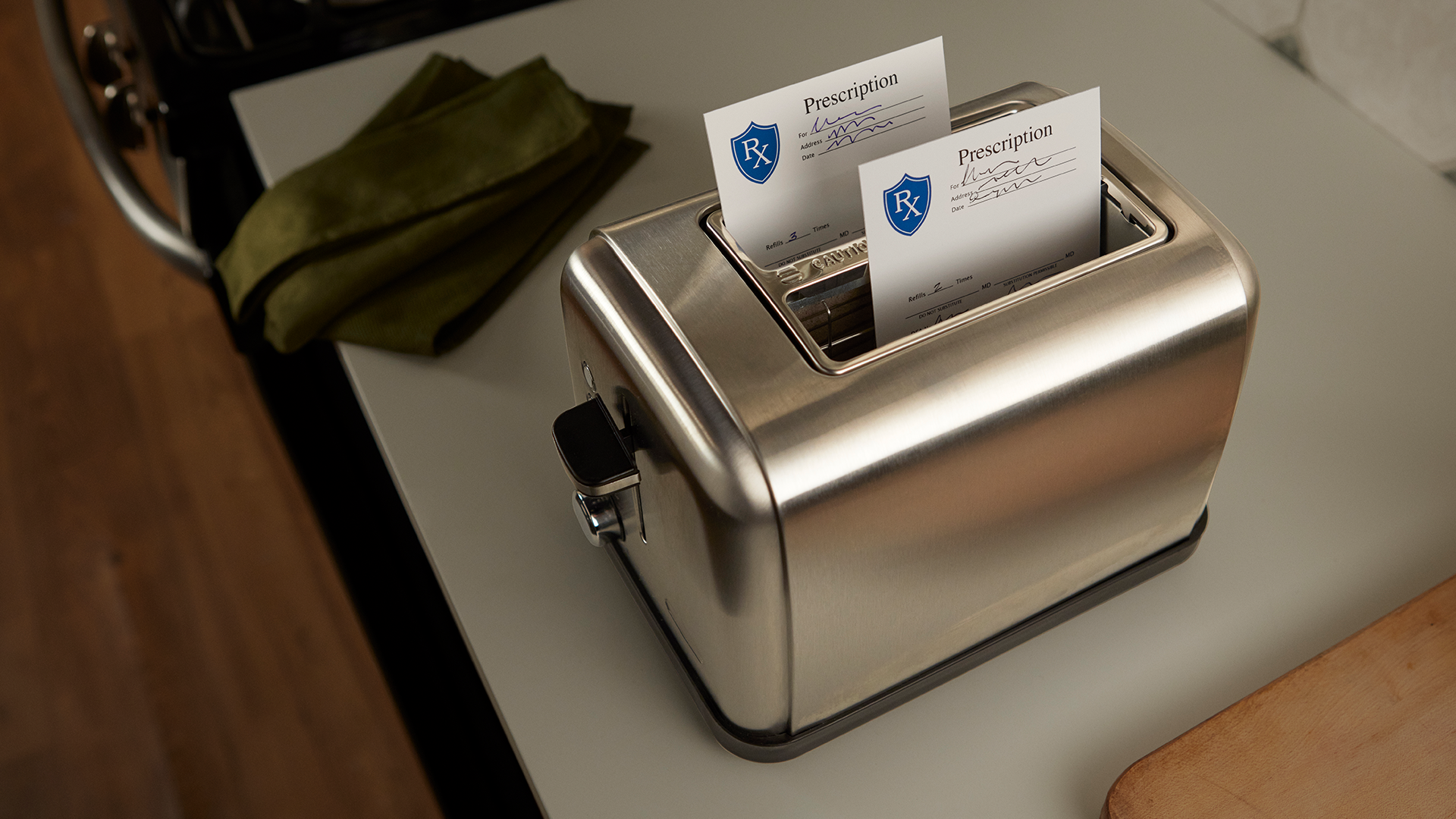Written By: Sandy Werner (Director of Marketing & Communications) & Les Sinclair (Communications & PR Manager)
As Food Bank staffers, we learn a lot from talking with our guests, pantry leaders, and colleagues. We understand chance plays a big part in who enters, stays in, and emerges from poverty. Things like the zip code where someone is born or whether their school receives adequate funding and resources. Whether there is a store with affordable, nutritious options in the community. Whether there is access to public transportation and affordable, high-quality healthcare. Whether someone lives in a safe and secure community.

Of the relentless worry about paying expenses every month, facilitator Nicholette Antoniuk pointed out: “It wears on you in a way that you don’t get that back. Time is the most precious resource we humans have. The amount of time it takes to just live in poverty–it takes everything.”
And when living in poverty, we know that people make difficult choices every day about which bills to pay. But “knowing” the reality is not the same as “living” it. To deepen our understanding of the challenges that some families face, we participated in a one-hour poverty simulation.
Cost of Poverty ExperienceTM (COPE)
Have you wondered what life is like for a single parent living on a low income trying to support a family? Or a senior living alone on a fixed income? Or a family that has immigrated here, speaks another language, and has little money to cover their bills? Participants took on the challenges of real people like these.
Facilitated by Patrick Henry Family Services, the one-hour poverty simulation allowed 40 community members to step out of their everyday lives and take on the challenges of real people living in poverty. Twenty volunteers played the part of community “resources”—landlord, bank and loan officer, court and probation officers, schoolteacher, mega mart clerk, social services worker, pawn shop broker, faith leader, and more.
During COPE, Sandy walked in ‘Mike’s’ shoes, assuming the mantle of a single dad to two teen-age girls who was trying to recover from a one-two punch–losing his wife two years prior and his job the year before. And, now, he was on the cusp of losing his home, and so much more.
Les walked through the experience as ‘Billy,’ an unemployed 22-year-old who lived with his mom and dad, two younger siblings, and a grandmother, with one car and a host of challenges between them.
The debrief
We, the participants of the simulation, were the lucky ones and when the one-hour bell rang, we stepped out of poverty and talked about the experience together. How many had paid bills on time? Ate? Kept appointments? Were evicted?
This question really hit home: “How many of you did anything fun with your family?” Well, no, no one had. What kind of a life was this?
After the session, we talked with the facilitator, Nicholette Antoniuk, who holds the position of Director of Family Care – Placement & Prevention at Patrick Henry Family Services, about why she and her organization lead these kinds of sessions.
“Because it starts conversations. It gets people connected with their community in a whole different way,” she explained. “I grew up in poverty, I’m out of poverty. But the first time I did this simulation, I said, ‘I’m gonna beat that.’ I didn’t beat it. You can’t have that attitude. Because if you think that you can beat it, then you expect other people to beat it.”
Stinson offered later, “If there is one thing that I could charge people to do, it is to reach out to someone in need, and reach out again, and reach out again, and offer relationship. And drop some expectations that something you do is going to work. Instead, be a resource, gather resources, and make other connections. But offer to be a safe person in their life.”
In real life, as in the simulation, any one of us could be the champion who changes the trajectory of a life.
It’s a rare person who makes it out of poverty. Chance and a kind person willing to help and make a meaningful connection can make all the difference.

